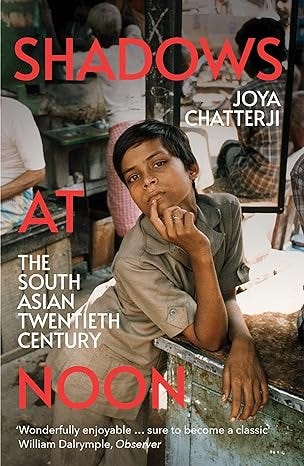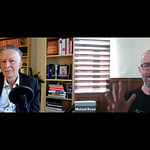Welcome to the Slow Read Along of Olga Tokarczuk, The Books of Jacob. You read along at your pace, and I guide you through the story, characters, and rich historical and cultural context.
This week there is a special bonus. I interviewed Liza Libes of Pens and Poison on our 100 Books to Read lists, and why literature is better for you than politics.
Catch-Up Week in Slow Read Along
Over the last few weeks of the Slow Read we have covered a lot of ground, after shifting gears to cover three chapters a week. So I thought it might be good before we dive into the conclusion of the novel to take a breather and give you some time to catch up on the Slow Read.
This may be especially helpful if you joined in the last two months after the start of the Slow Read.
Last week we followed Jacob Frank into his prison cell at Częstochowa. Slow Read of chapters 22 to 24 also featured the character Gaudenty Pikulski and the cultural significance of Częstochowa, the holy site of Polish Christianity whose Black Madonna finally connects the story of Jacob and Elżbieta Drużbacka.
In Slow Read: Books of Jacob, chapters 19-21 we met Asher Rubin, the kindly, enlightened Jewish doctor. We watched hate transform into a plague after Jacob Frank converted to Christianity and smeared his fellow Jews with the blood libel. We learned about the Frankists’ 1759 conversion, blood libel and Hasidism.
In Slow Read: Books of Jacob, chapters 16-18, we met Elżbieta Drużbacka and learned about the Seven Years War (1756-1763). These three chapters took us to the end of the road for Jacob Frank and his followers wandering, from Türkiye back to Poland and then to a small village in current-day Moldavia. The Frankists appear to have settled in freedom, yet they are watched through the eyes of Moliwda, who seems to be both a faithful believer and a spy for the Catholic Church, whose leading bishop prepares the Frankists covertly for conversion.
That is a lot of slow reading in three weeks. Feel free to catch up and reflect on your progress this week. The Slow Read page has an index of posts, characters and context topics discussed.
100 Books to Read Before You Die Dialogue
A special treat this week for my Literature Slow Read post!
I spoke with
- fellow substacker - discussed our lists of 100 books to read before you die and how to talk about literature without talking about politics.Liza Libes is an author and poet, and I recommend her substack, Pens and Poison. Her literary project aims to restore the idea of literature as a work of art rather than as a political vehicle. Everything does not have to be about politics, all the time. Literature, in the end, is a more sustaining life force, and better for your mental health, than the latest news feed about whichever government is your poison.
You can read Liza’s Definitive List of 100 Classic Novels to Read Before You Die, and catch a glimpse of it during the interview.
You can read my list of 100 Books to Read Before it is Too Late, which is discussed more briefly in the interview.
And please let Liza or myself know of the books you would add to a list of your most loved literary classics.
Because such lists are best enjoyed in the spirit of conversation and dialogue. As the Russian literary critic, Mikhail Bakhtin wrote:
Truth is not born nor is it to be found inside the head of an individual person, it is born between people collectively searching for truth, in the process of their dialogic interaction
—Mikhail Bakhtin, The Dialogic Imagination
I will be back next Monday with the next instalment of my Slow Read of Olga Tokarczuk, The Books of Jacob, which in a way is a celebration of Bakhtin’s polyvocal dialogue too.
And over the rest of this week, I conclude the China leg of my World History World Tour.
On Wednesday, I conclude my deep dive of Klaus Mühlhahn, Making China Modern and his account of China’s contemporary ambitions and anxieties.
On Saturday, I discuss population ageing (a policy field I worked on in government for several years) and the consequences of the One Child Policy in contemporary China.
After China, we travel to South Asia and will explore India as a nation, world power and ‘civilization state’ through the 2024 Winner of the Wolfson History Prize and Los Angeles Times History Prize, Joya Chatterji, Shadows at Noon: The South Asian Twentieth Century.













Share this post